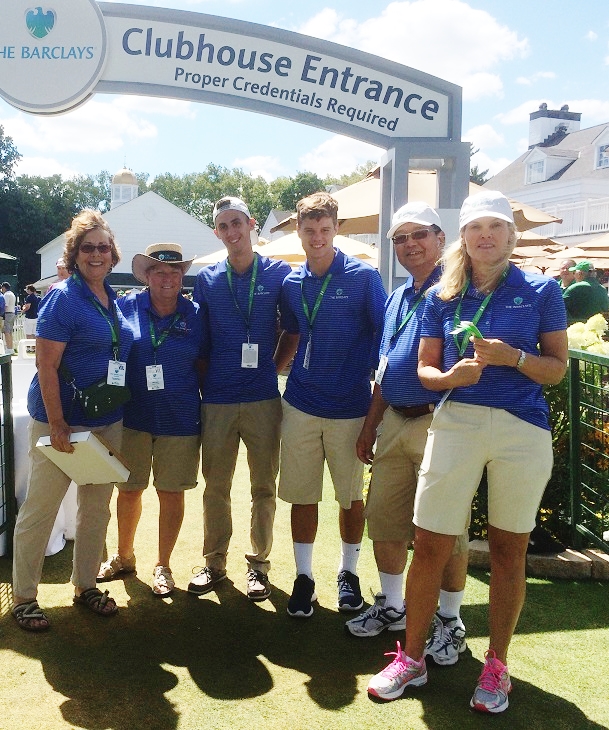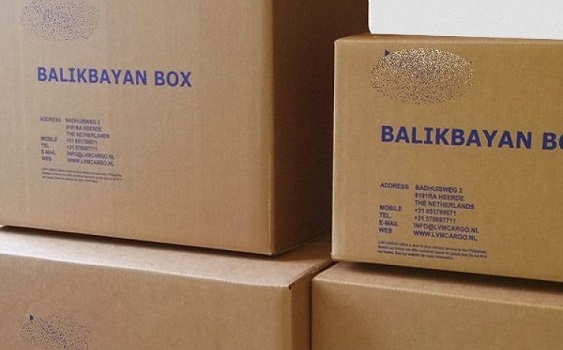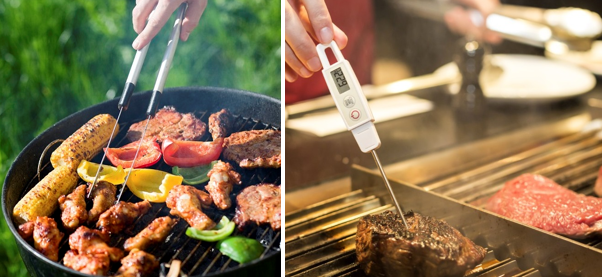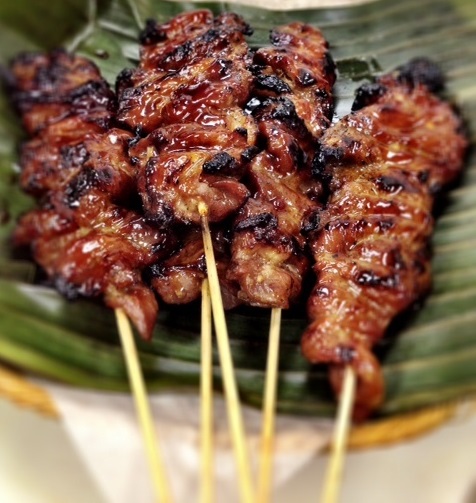A conversation with my Filipino mother-in-law about food safety
By Kristen Booze
U.S. Department of Agriculture Food Safety and Inspection Service
Two years ago, I married into a Filipino-American family, and have learned a bunch about the culture through my magnificent mother-in- law and all of my new Filipina “titas” or “aunties.”
Very early on, I witnessed how Filipinos often show their love through food. My mother-in- law, as caring as she is, is always preparing food for others, whether it be a birthday celebration, church gathering, baby shower, or simply for family road trips. While this food is always
delicious and appreciated, it is also important for this food to be safe.
Growing up in the Philippines, safe food handling and storage was not a priority for my mother-in-law’s family. A larger priority was hanging their leftover food from the ceiling so that animals would not get to the food during the night!
Today, she practices much improved food safety, but there is no doubt that culture and tradition may play a role in the way food is handled and stored, and it may not always be the best for our family’s health. Now, she and I work together to ensure she doesn’t accidently make her grandchildren or friends sick while expressing her love through her tasty Filipino dishes!
Being a part of my FilAm family, I know the summer is the time of year for large family gatherings, parties, barbeques and pig roasts (‘lechon’…yummm). And, as is common in the FilAm culture, I am sure you will all be preparing your favorite dishes at home and transporting
them to the parties for all to enjoy.
The USDA Food Safety and Inspection Service (FSIS) wants to make sure the public has the right information to handle this food safely, so everyone has a very healthy summer!
Here are some of tips for food safety this summer:
• When carrying food to another location, keep it cold to minimize bacterial growth. Use an insulated cooler with sufficient ice or ice packs to keep the food at 40°F or below. Pack food right from the refrigerator into the cooler immediately before leaving home.
• Keep cold food cold and hot food hot. Serve cold food in small portions and keep the rest in the cooler. Keep hot food hot by setting it to the side of the grill rack, not
directly over the coals where they could overcook.
• Refrigerate any leftovers promptly in shallow containers. Discard any food left out more than two hours (one hour if temperatures are above 90°F).
• The ‘Danger Zone’: Perishable food should not sit out at room temperature for more than two hours. In hot summer weather (above 90°F), perishable food should
not sit out for more than one hour. Bacteria can multiply rapidly, doubling in number in as little as 20 minutes, if food is left out too long.
• Grill like a PRO by using a food thermometer to avoid foodborne illness.
You can’t see harmful bacteria on your burgers, chicken and steak. Using a food thermometer is the only way to know that your food is safe to eat. The USDA recommends using the PRO method so that you are Grilling Like a PRO this summer.
P—Place the thermometer in the thickest part of the meat.
R—Read the temperature.
– Beef, pork, lamb and veal (steaks, roasts and chops): 145°F (63°C)
– Ground meats: 160°F (71°C)
– Whole poultry, poultry breasts and ground poultry: 165°F (74°C)
O—Off the Grill
• Once the meat and poultry reach their safe minimum internal temperatures, take the food off the grill and place it on a clean plate. Do not place cooked food on the same platter that held raw meat or poultry.
Additionally, it’s important to tell you that FSIS has expanded its Meat and Poultry Hotline hours to help consumers with safe food handling questions. You can reach the hotline by calling1-888-674-6854 from 10 a.m. ET to 6 p.m. ET. Please visit Foodsafety.gov for more tips on food safety. Wishing you all a happy, healthy and safe summer!
Kristen Booze, a native New Yorker, lives with her FilAm husband in Virginia. She works for the USDA Food Safety and Inspection Service as a Public Affairs Specialist. Kristen has her Masters of Public Health (MPH) and is interested in preventing foodborne illness. She is a food safety advocate both in and out of the workplace, buying food thermometers for family members, discouraging friends from eating undercooked burgers at home and restaurants, and explaining to friends and family how she has had to modify the foods she eats as she prepares for her and her husband’s first baby to arrive in August!
Copyright © 2017 The FilAm














